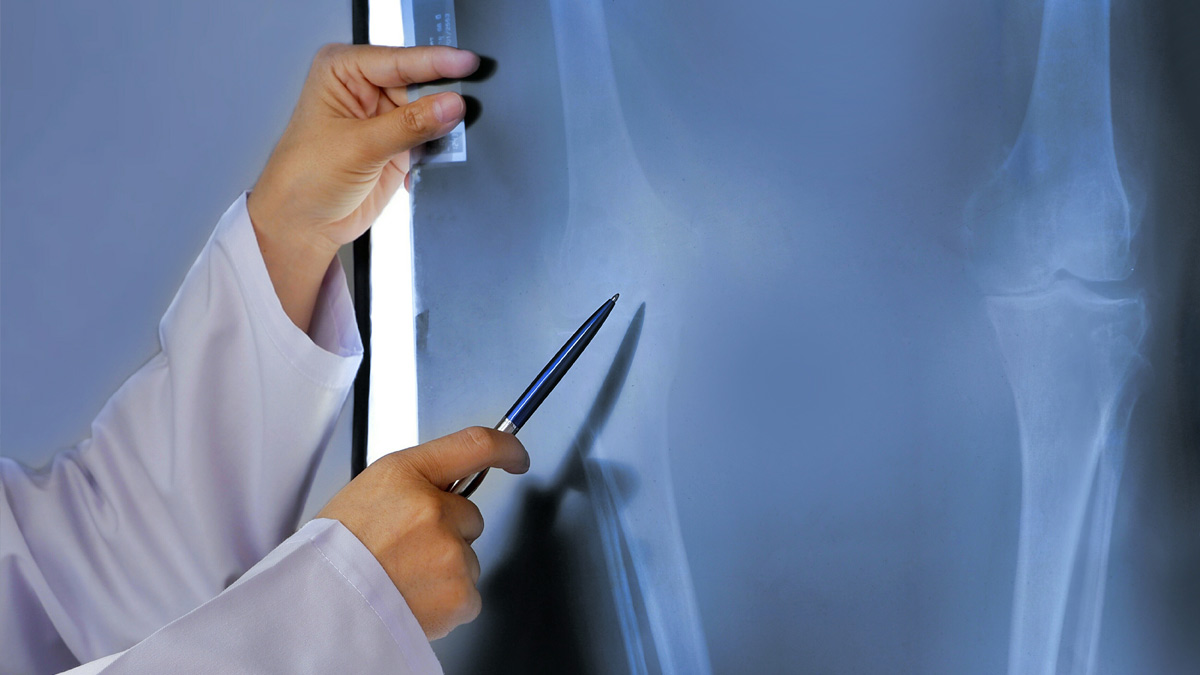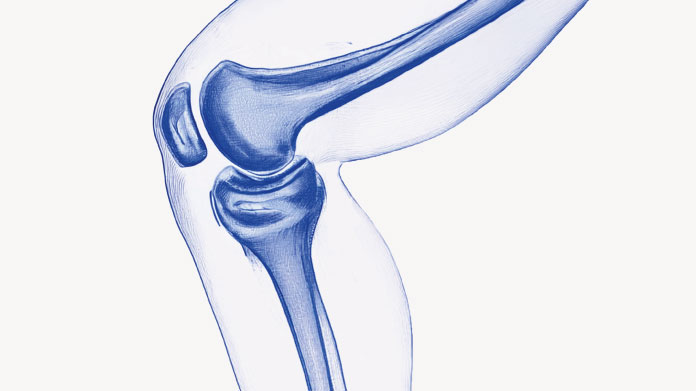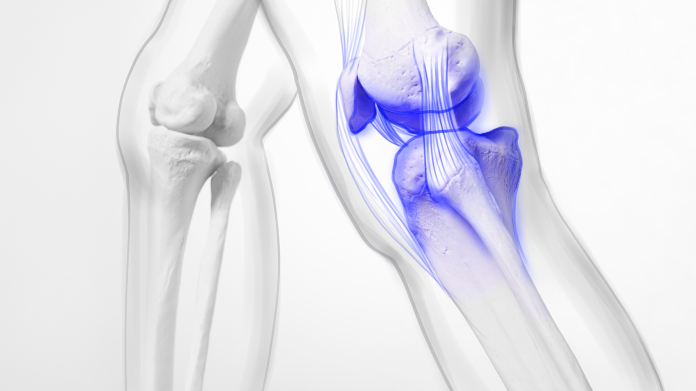10 effective and enduring measures for strengthening the bones
What can you do to maintain bone mass? How can you minimise the effects of aging on your bones? Here are our top tips for preserving a healthy skeleton throughout life.

Maintaining bone mass is vital, at all stages of life. How strong your bones are will depend on your age, lifestyle, hormonal fluctuations ... But simple measures can be taken to prevent and minimise the breakdown of bone: here are our top ten tips for maintaining strong bones right through to old age.
Eat a balanced diet
This is the no. 1 recommendation for supporting healthy bones. A varied, balanced diet, containing sufficient quantities of all the necessary elements, provides the foundations of healthy bone mass.
- Calcium: found in dairy products, especially hard cheeses like Emmental, Comté and Parmesan, as well as in almonds, spinach and other green leafy vegetables, citrus fruit, and kiwi fruit … Calcium is also available as a dietary supplement, the best form being Calcium orotate.
- Vitamin D: essential for good calcium metabolism and produced in the skin on exposure to the sun. It’s therefore important to expose your skin to daylight as much as possible. Vitamin D is also found in eggs and oily fish such as salmon, tuna and trout which have the added benefit of being rich in omega-3, essential fatty acids that reduce the inflammation partly responsible for bone loss. In the case of deficiency, you can also supplement with ampoules or capsules of vitamin D.
- Mineral salts (magnesium, phosphorus, potassium) and trace elements (zinc, manganese, iron …): play a role in bone formation: they’re found in fruits, vegetables, seafood, seeds of all kinds, and pulses … It’s also advisable to drink calcium- and magnesium-rich mineral water.
Take regular exercise
Engaging in regular sports activity means that mechanical force is applied to bones which stimulates cell proliferation. In contrast, a sedentary lifestyle leads to bone demineralisation, and as a result, excessive fragility. Physical activity, started as early as possible, helps increase peak bone density! Beneficial effects that have the added advantage of being measurable over the long term (1).
The best forms of activity are ‘weight-bearing’ – those practised on two feet such as fast, long distance walking, running, fitness classes, tennis… Strength-training is also recommended.
Note: starting or restarting any exercise program should be done under medical supervision to ensure that the activity is appropriate for your fitness levels.
Control your day-to-day stress levels
Though it’s not widely-known, stress has a negative effect on the health of our bones. As a response to stress, the body stimulates production of the hormone cortisol in the adrenal glands. Excess cortisol interferes with the creation of new bone cells: it reduces bone density and increases the risk of fractures(2).
It’s therefore important to find ways of minimising your daily stress levels. Meditation, yoga, getting some fresh air, going out with friends, taking some exercise … there are many de-stressing options to choose from!
Reduce your alcohol intake
Quite apart from the effects of drunkenness, which causes a significant number of fractures, excessive alcohol consumption alters the formation of bone cells, making bones weaker (3). Alcohol also increases oxidative stress in cells: this facilitates free radical activity which accelerates the breakdown of bone cells(4).
In addition, the binge-drinking popular among teenagers prevents them from achieving peak bone density, paving the way for osteoporosis in adulthood(5).
Moderation should always be the watchword when it comes to alcohol consumption, an approach that will also benefit the health of your bones.
Quit smoking
We know that smoking is extremely bad for our health and that of those around us and this is no less true for bone health. Both active and passive smoking reduces bone density and increases the risk of fractures by impairing the mechanisms of bone cell formation. In addition, continuing to smoke after sustaining a fracture will decrease the body’s capacity for bone regeneration, and slow down the bone-healing process (6).
The negative effects of smoking on bone metabolism are, however, reversible: stopping smoking will thus produce real benefits for the health of your bones! Be sure to take advantage of any support offered by your GP or pharmacist.
Reduce your salt and coffee consumption
In making the body more acid, high consumption of salt and caffeine is responsible for excessive calcium loss in urine, which at the same time exacerbates loss of bone density (7,8). It’s therefore sensible to consume caffeinated products (coffee, tea, chocolate, fizzy and energy drinks) in moderation and to use salt sparingly in cooking. Instead, choose herbs and spices to season food in order to safeguard your bone mass.
Make sure you have any recommended medical tests
As women approach the menopause, they’re at greater risk of a deterioration in bone health: levels of estrogen plummet, significantly diminishing the key role it plays in bone cell metabolism. The risk of osteoporosis, a condition which weakens the bones, is very real: 39% of women over 65 are affected, with osteoporosis responsible for almost 400,000 fractures a year (9). If you’re a perimenopausal woman, your doctor can refer you for a bone density scan, and start you on therapeutic management if necessary.
Strengthen your bones with plants
Phytotherapy also plays a role in maintaining healthy bones.
- Nettle (Urtica Dioica) promotes bone remineralisation: it’s consumed in the form of a tea or a nettle dietary supplement (10);
- horsetail (Equisetum Arvense) is rich in silicon which encourages absorption and binding of calcium to the bones. It too is consumed in the form of a tea or capsule (11) ;
- lithothamnion, or maerl, is a collective name for a species of red algae which reduce bone cell degradation and help channel calcium and increase its bioavailability to the body. This algae is available as a dietary supplement (12).
Boost your intake of vitamin K
Vitamin K protects bone density by helping calcium bind to a protein necessary for its uptake by the bones. A lack of vitamin K thus increases the risk of bone fragility (13). It‘s the vitamin K2 form which is needed for bone health : it’s found in fermented foods (sauerkraut, fermented soybeans or ‘natto’, cheese, yogurt) as well as in dietary supplements such as MK-7, the only form of vitamin K2 to increase vitamin K blood levels by up to 8 times.
Take probiotics
The role of probiotics in digestive health is well-established, but less well-known is their beneficial effect on our bones! A study has shown that when taken daily, some strains of probiotic bacteria are able to reduce loss of bone density by half, particularly in menopausal women. Lactobacillus and bifidobacteria have already demonstrated positive effects on bone mass, in particular, by increasing the bioavailability of minerals and their role in bone metabolism (14).
Adopting good habits in everyday life can help ensure good bone health. At the same time, there are interesting and unexpected approaches that can also provide support, particularly at stages in life when our bones are under excessive pressure … The good news is that we now have an embarrassment of choices when it comes to supporting bone mass!
And we couldn’t end this article without mentioning one of our best formulations, Super Bone formula, a dietary supplement that combines eight different ingredients recognized for their role in maintaining healthy bones (calcium, magnesium, vitamin K2, isoflavones, boron and vitamin D3...).
References
- N. J. Farpour-Lambert R. Rizzoli. Santé osseuse de l'adolescent. Rev Med Suisse 2003; volume -1. 22820.
- YONG S. CHYUN, BARBARA E. KREAM, LAWRENCE G. RAISZ, Cortisol Decreases Bone Formation by Inhibiting Periosteal Cell Proliferation, Endocrinology, Volume 114, Issue 2, 1 February 1984, Pages 477–480.
- Maurel DB, Boisseau N, Benhamou CL, Jaffre C. Alcohol and bone: review of dose effects and mechanisms. Osteoporos Int. 2012 Jan;23(1):1-16.
- Samar Basu, Karl Michaëlsson, Helena Olofsson, Sara Johansson, Håkan Melhus, Association between Oxidative Stress and Bone Mineral Density, Biochemical and Biophysical Research Communications, Volume 288, Issue 1, 2001, Pages 275-279.
- Joseph W. LaBrie, Sarah Boyle, Andrew Earle, and Hawley C. Almstedt. Heavy Episodic Drinking Is Associated With Poorer Bone Health in Adolescent and Young Adult Women. Journal of Studies on Alcohol and Drugs 2018 79:3, 391-398.
- Victoria B. Duthon, Mehmet Ozturk, Jacques Menetrey, Sarah El-Achachi. Effets délétères du tabagisme sur l’appareil musculo-squelettique. Rev Med Suisse 2014; volume 10. 1466-1471.
- Massey, L. K. and Whiting, S. J. (1996), Dietary salt, urinary calcium, and bone loss. J Bone Miner Res, 11: 731-736.
- Choi MK, Kim MH. The Association between Coffee Consumption and Bone Status in Young Adult Males according to Calcium Intake Level. Clin Nutr Res. 2016;5(3):180–189.
- Inserm : Ostéoporose, dossier d'information, mis à jour 2016. Consulté en octobre 2019.
- Ramji Gupta, Manika Singh, Mukesh Kumar, Sokindar Kumar, Surya Prakash Singh. Anti-osteoporotic effect of Urtica dioica on ovariectomised rat. Indian Journal of Research in Pharmacy and Biotechnology. 2014.
- Badole, Smita & Kotwal, Swati. (2014). Equisetum arvense: Ethanopharmacological and Phytochemical review with reference to osteoporosis. International Journal of Pharmaceutical Science and Health Care. 1. 131-141.
- Silvana Rodrigues de Albuquerque Taddei, Mila Fernandes Moreira Madeira, Izabella Lucas de Abreu Lima, Celso Martins Queiroz-Junior, Adriana Pedrosa Moura, Dauro Douglas Oliveira, Ildeu Andrade Jr, Danielle da Glória Souza, Mauro Martins Teixeira, and Tarcília Aparecida da Silva (2014) Effect of Lithothamnium sp and calcium supplements in strain- and infection-induced bone resorption. The Angle Orthodontist: November 2014, Vol. 84, No. 6, pp. 980-988.
- Monograph. Vitamin K2. Alternative Medecine Review 2009;14(3) :284-293.
- Kolsoom Parvaneh, Rosita Jamaluddin, Golgis Karimi, and Reza Erfani, Effect of Probiotics Supplementation on Bone Mineral Content and Bone Mass Density, The Scientific World Journal, vol. 2014.
Keywords
4 Days
repeat customer
recommended by my doctor. easy to create an account. Discounts and specials are appreciated. packaging and delivery is dependable. Capsules easy to digest. I've had some some capsules and tablets that are broken inside their bottles.
Kokee
9 Days
Order was shipped on time and packaged…Wonderful Jobs!
Order was shipped on time and packaged excellently.
DMHoge
15 Days
great products and prices
great products and prices
Marie
21 Days
Easy to navigate site
Easy to navigate site, had what I was searching for, good price. easy order-check out
James Tucker
27 Days
My skin is clearing up nicely!
Pretty good for my skin so far.
Christian
29 Days
The new packaging is excellent
The new packaging is excellent - finally! No more squashed boxes and torn envelopes.
GORAN
30 Days
Great Product
Great Product
Larry Garrett
34 Days
Quick shipping
Quick shipping; good price. No issues!
Mary McCarty
36 Days
Thr product is very good and is helping…
Thr product is very good and is helping me on my health. Then is always on time
LUGO Luz
38 Days
Buying was fine
Buying was fine. I had problems with the website not recognizing my login info, and had to call to get it fixed. Other than that, everything was good.
David S. Clark
39 Days
Your super maca and super ginseng are…phenomenal
Your super maca and super ginseng are phenomenal supplements that compliment each other when taking them together. Fantastic feeling of well-being and lots of mid day energy without the crash.
Keith Mason
41 Days
I have had amazing results with every…
I have had amazing results with every supplement I've purchased. I am extremely satisfied with this company
kirstin Torres
41 Days
Fine products
Fine products . They are on the leading edge of online supplements. The only issue -so far-is they sometime run out of subscription items.
Jason Argos
44 Days
The ordering process is very user…
The ordering process is very user friendly and the products always come in a timely manner.
CARTER Rhonda
45 Days
The price for Dr
The price for Dr. Pero's AC-11 is reasonable and in line with his views. (my former colleague). Keep it pure.
CAMPBELL Clayton




